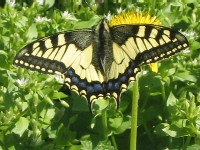|
 ON MÁRIA FERENČUHOVÁ
ON MÁRIA FERENČUHOVÁ
Mária Ferenčuhová is in terms of her publishing history a wholly twenty-first century poet and this is true of her style, procedures and subject matter. She writes relatively slowly compared with some of her contemporaries considering that Slovak poetry collections are relatively slim volumes, much less than1,000 lines in length. Slovak critics have characterized Mária’s work as being related to the ANesthetic generation and the Text generation of Nora Ružičková and Katarína Kucbelová whose neutral tone and use of abstract terms is in contrast to the post-Tender revolutionary passions where an older generation of Slovak poets were able to release work energized by the Beats. Mária’s work resists the pressure emerging from a still potent male-centred critical attitude to women poets in Slovakia which has confined them to a role where they wrote brief lyrics on intimate themes, nature or composed poetry for children. Despite the work of a number of strong, older women poets, for example Mila Haugová (born 1942), Anna Ondrejková (born 1954), Dana Podracká (born1954) and Viera Prokešová(1957-2008), this expectation of a feminine as opposed to a feminist still poses a barrier to the reception of poetry by women in Slovakia so that poems whose energy and content is directed outside or beyond this patriarchal undercurrent often catch critics off guard.
The poet and critic, Ján Gavura, has coined the phrase “okokameramanky”(Camerawoman’s eye), referring to her work as a lecturer on film.This is slightly misleading for Anglophone readers for whom Isherwood’s “I am a camera” belongs to another era of realism in writing. Mária is not a realist in that sense at all. Certainly there is an ability to switch visual perspectives in the space of a single poem, to zoom in and out. In Threatened Species the sequence opens with a view from space, “The view from above doesn’t belong to a god / but a satellite”, but by section 10 we have a microscopic viewpoint, “we examine the skin on faces / maps of blood vessels, craters for cells.” There is also a merging of the self with the environment; human beings in Mária’s poems are also animals and not separated from the environment. Often in her poetry the body becomes both exterior and interior landscape, a juxtaposition of macroscopic and microscopic vision akin to the hermetic doctrine of “as above,so below.”
I read Mária’s poetry with same excitement that I first read the English Metaphysicals many years ago.
|


